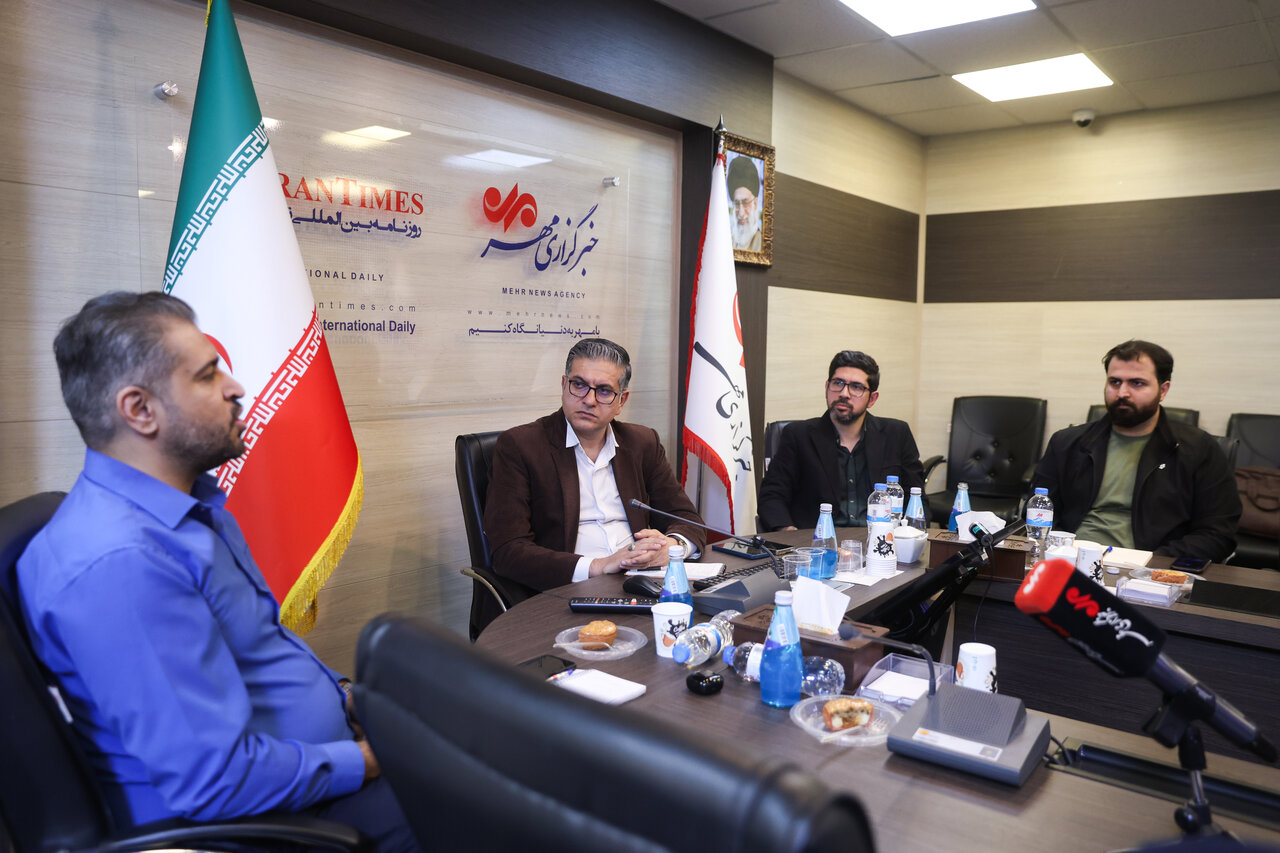Mehr Media Group hosts roundtable on Gaza ceasefire and Palestinian future

TEHRAN – The Mehr Media Group convened a meeting on Tuesday to discuss the Palestinian issue on the second anniversary of Operation Al-Aqsa Storm, Hamas’ surprise military operation in southern Israel that reshaped regional dynamics and highlighted Gaza’s plight.
The forum, titled “The Future of Gaza in Light of Trump’s Plan,” coincided with negotiations in Egypt between Hamas, Israel, and U.S. representatives regarding Donald Trump’s 20-point ceasefire plan for Gaza. The plan envisions an immediate ceasefire, the release of all captives within 72 hours, Israel’s withdrawal from Gaza, and the release of hundreds of Palestinian prisoners. It also stipulates humanitarian aid, reconstruction, and the right of Palestinians to remain in—or return freely to—Gaza.
Experts and analysts attending the meeting, including Mansour Barati, researcher on Israeli affairs; Mohammad Bayat, expert in international relations; and Hossein Hooshmand, U.S. affairs analyst, agreed that Operation Al-Aqsa Storm revived the Palestinian cause after years of marginalization and forced it back onto the global stage.
Opportunities and challenges
Barati analyzed the potential benefits and challenges of the proposed ceasefire. On the positive side, he noted that the plan calls for an end to Israel’s war on Gaza and rejects the forced displacement of Palestinians—a demand supported by far-right Israeli ministers Itamar Ben-Gvir and Bezalel Smotrich. Barati also emphasized that, based on the ceasefire plan, Israel should not occupy Gaza and that civil administration would remain in Palestinian hands, potentially fostering greater unity among Palestinian factions.
Barati also highlighted potential challenges, warning that the plan could encourage further normalization between Israel and certain Arab states while pressuring the Palestinian resistance to disarm. He noted that if Hamas releases the remaining Israeli captives, Israel might reduce its commitment to the ceasefire and resume hostilities.
The “kingmaker” dynamic
Barati discussed the political instability within Israel’s government, noting that Prime Minister Benjamin Netanyahu faces pressure from far-right coalition partners threatening to leave the cabinet. He explained that Netanyahu’s survival could hinge on escalatory policies—such as West Bank annexation, confronting Hezbollah, or further military operations.
Barati further highlighted the “kingmaker” dynamic: should far-right ministers depart, opposition leader Benny Gantz or hardline politicians could determine the balance of power, forcing Netanyahu to make concessions or adjust his strategy. This dynamic underscores the fragility of Israel’s coalition politics and its impact on the continuation of occupation and hostilities.
The Palestinian cause
Bayat emphasized that Operation Al-Aqsa Storm has restored global attention to the Palestinian struggle, countering efforts to marginalize Gaza. He noted that the ceasefire plan, while not perfect, implicitly acknowledges Israel’s failure to impose full control over Gaza and challenges the vision of a “Greater Israel.”
Bayat explained that if implemented earnestly, the plan could improve humanitarian conditions and pave the way for reconstruction. However, he stressed that lasting stability requires an end to the occupation and lifting the blockade imposed by Israel for nearly two decades.
U.S. role and international pressure
Hooshmand analyzed the evolving role of the United States. He noted that, while the Trump administration has rejected the two-state solution, growing pressure from Arab states and public opinion has encouraged a ceasefire proposal. Hooshmand also suggested that Trump’s motivations may include personal prestige and potential international accolades, including the Nobel Peace Prize. Hooshmand further highlighted shifting global attitudes, observing that countries such as the UK, France, Canada, and Australia — traditionally aligned with Israel — have recognized Palestinian statehood due to domestic pressure over the Gaza genocide.
The forum concluded that the Palestinian issue remains a central test of justice and international responsibility.
While the ceasefire plan carries both opportunities and challenges, analysts emphasized that any sustainable peace must start with an end to occupation, recognition of Palestinian sovereignty, and respect for the right of return.
They agreed that Operation Al-Aqsa Storm marked a turning point: the Palestinian struggle cannot be silenced, and resistance will continue as long as the occupation persists. The Israeli political landscape, shaped by far-right pressures and the “kingmaker” dynamic described by Barati, will continue to influence the prospects for peace or renewed conflict.
